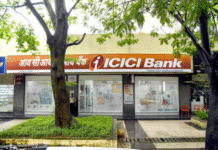New Delhi– The Supreme Court on Tuesday said when the resolution plan is approved by the National Company Law Tribunal (NCLT), the claims, which are not part of the plan, would stand extinguished and the proceedings related to them stand terminated.
A bench of Justices R.F. Nariman, B.R. Gavai and Hrishikesh Roy said: “Since the subject matter of the petition are the proceedings, which relate to the claims of the respondents prior to the approval of the plan, in the light of the view taken by us, the same cannot be continued. Equally the claims, which are not part of the resolution plan, shall stand extinguished.”
The bench observed that once a resolution plan is duly approved by the adjudicating authority under subsection (1) of Section 31, the claims as provided in the resolution plan will stand frozen and binding on the corporate debtor and its employees, members, creditors and other stakeholders.
Claims, which are not a part of the resolution plan, shall stand extinguished and no person will be entitled to initiate or continue any proceedings in respect to a claim, which is not part of the resolution plan.
The top court said all statutory dues owed to the Centre, “any state government or any local authority, if not part of the resolution plan, shall stand extinguished and no proceedings in respect of such dues for the period prior to the date on which the Adjudicating Authority grants its approval under Section 31 could be continued”.
The bench noted that 2019 amendment to Section 31 of Insolvency &Bankruptcy Code (IBC) is clarificatory and declaratory in nature and therefore will have a retrospective operation.
“2019 amendment to Section 31 of the I&B Code is clarificatory and declaratory in nature and therefore will be effective from the date on which I&B Code has come into effect,” it said.
The 139-page judgment of the top court came on a batch of appeals where it answered three crucial questions related to resolution plan: (i) Whether any creditor – Centre, states or local authority — is bound by the resolution after approval by an adjudicating authority under subsection (1) of Section 31 IBC? (ii) Whether the amendment to Section 31 by Section 7 of Act 26 of 2019 is clarificatory/declaratory or substantive in nature? (iii) Whether after approval of resolution plan by adjudicating authority, a creditor is entitled to initiate any proceedings for recovery of any of the dues from the corporate debtor, which are not a part of the plan? (IANS)







